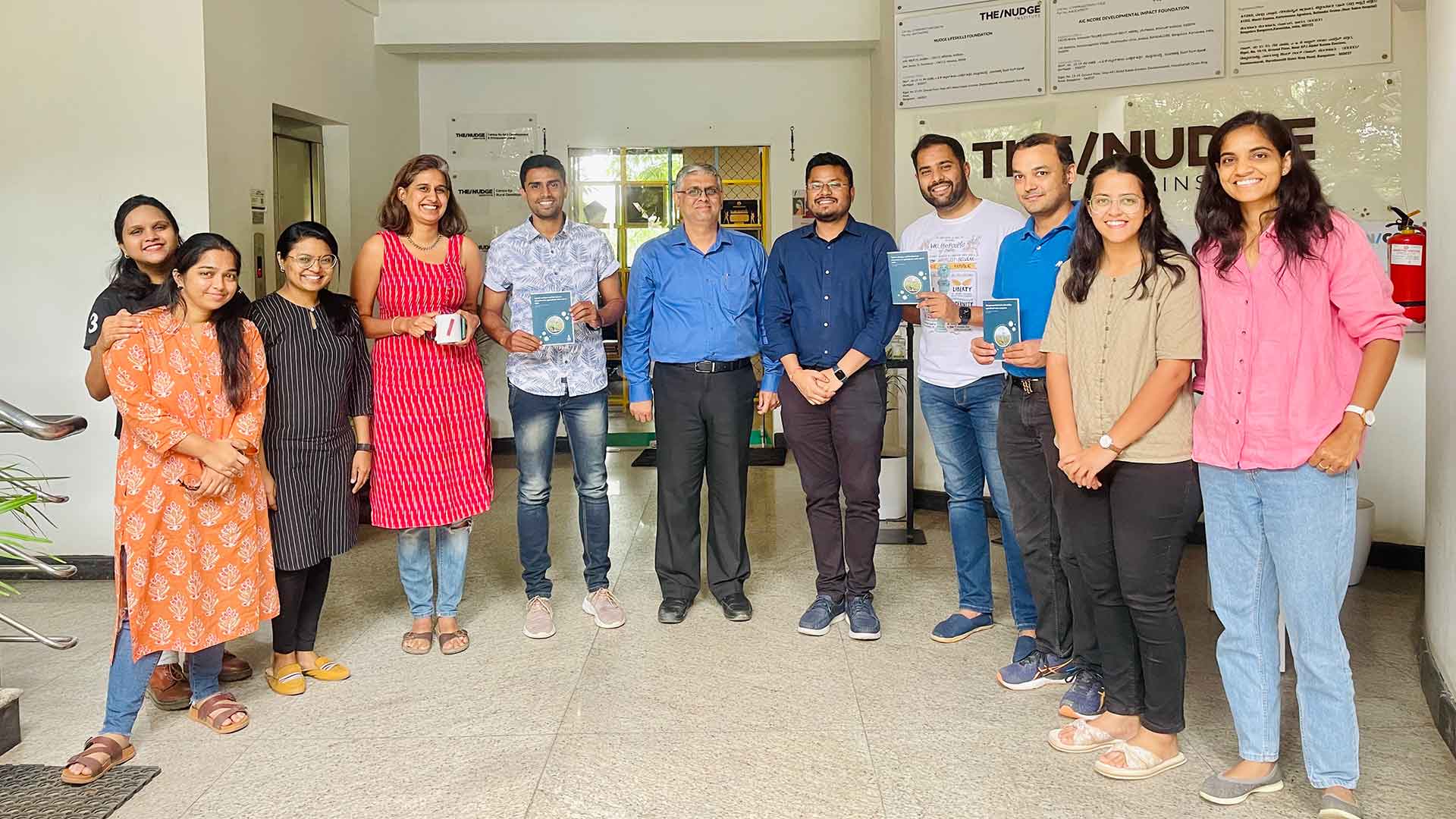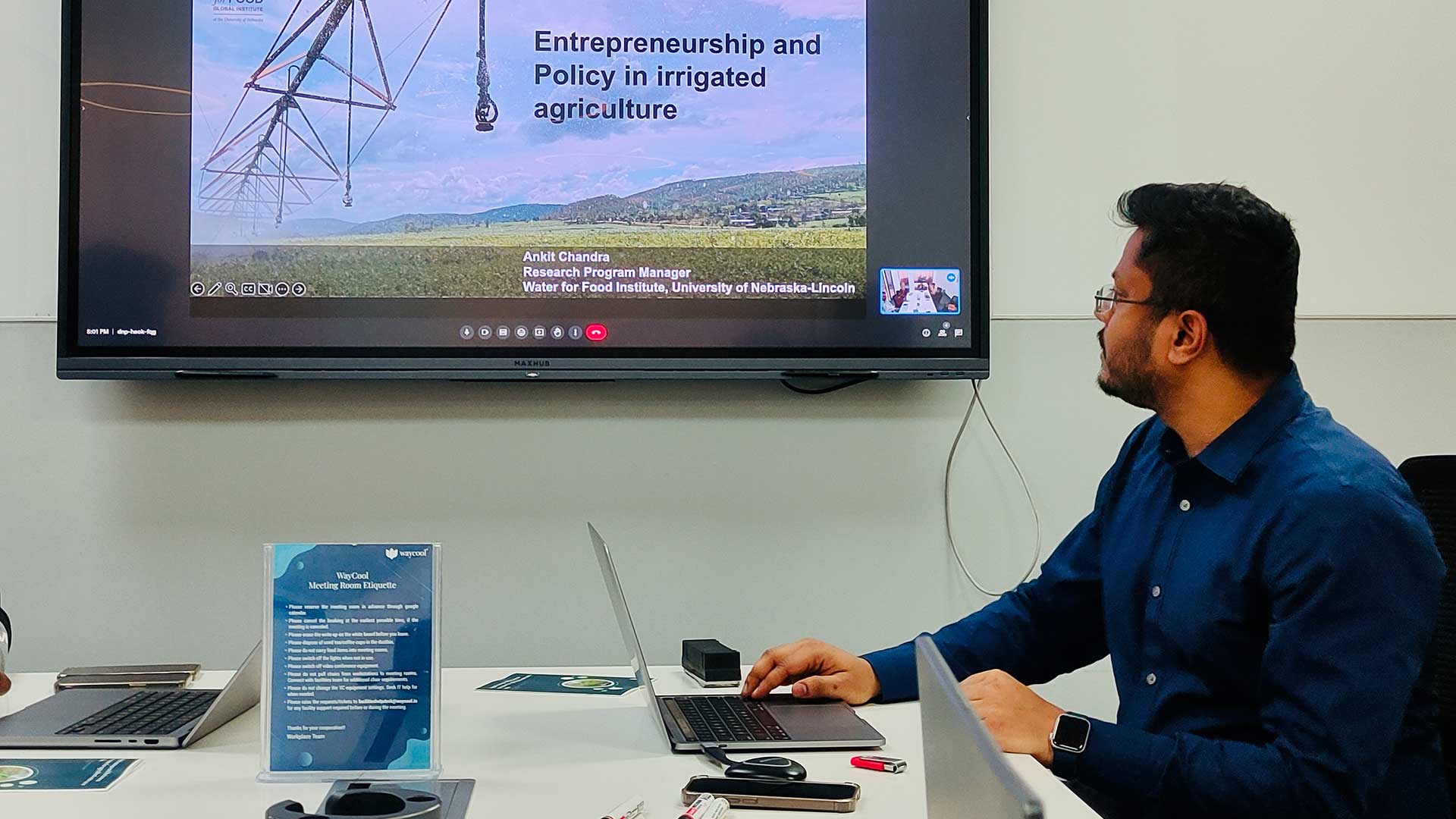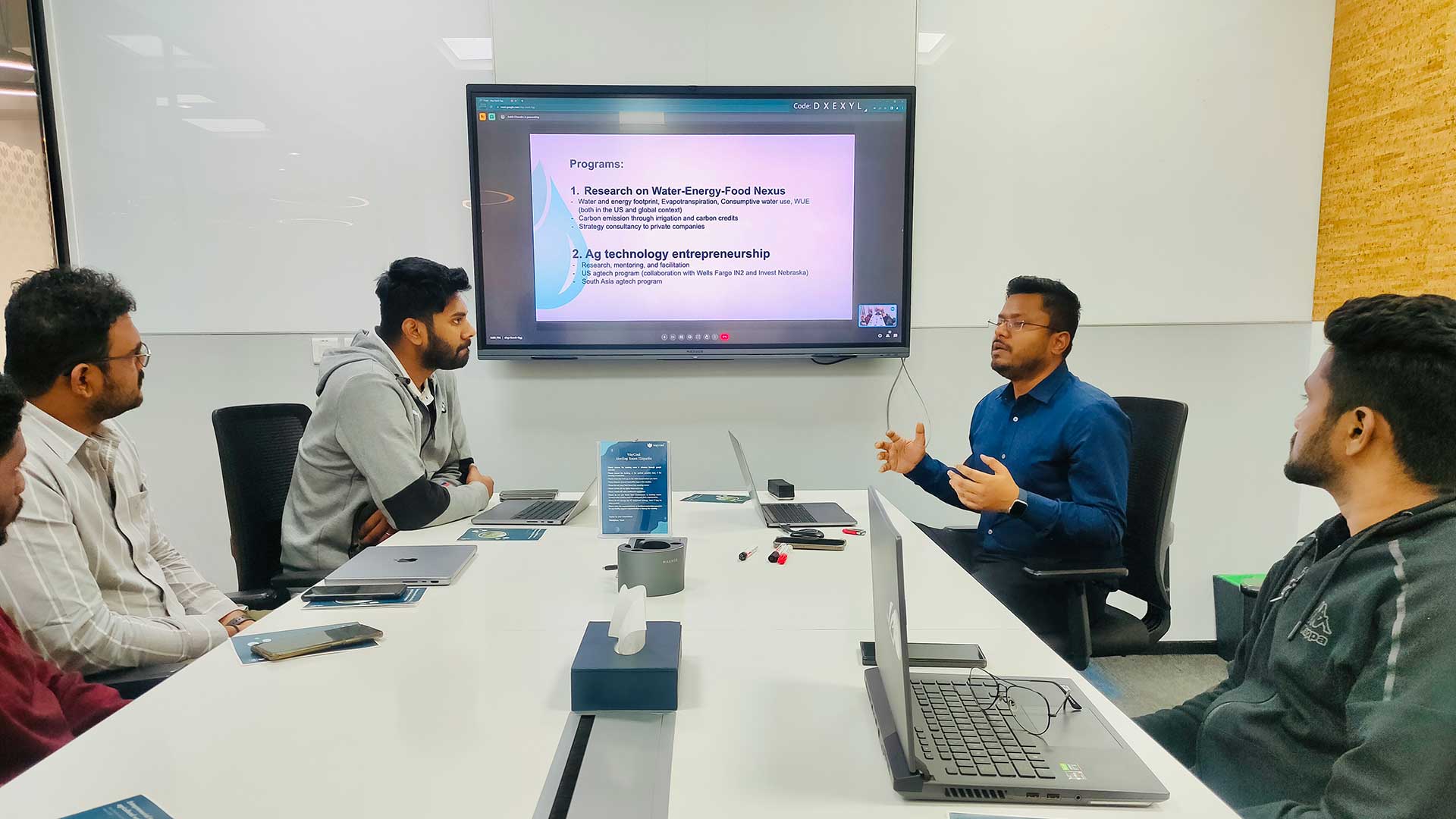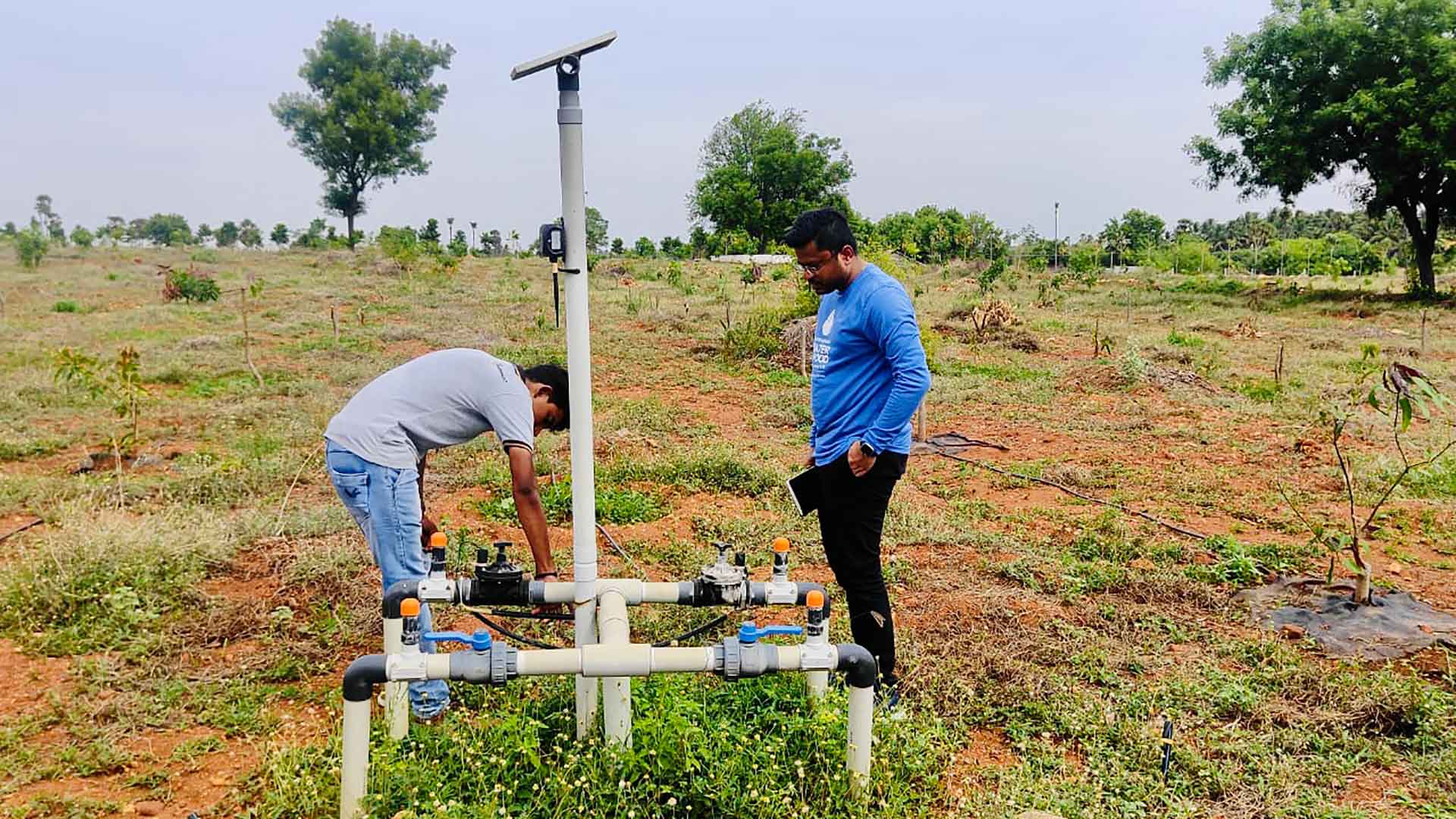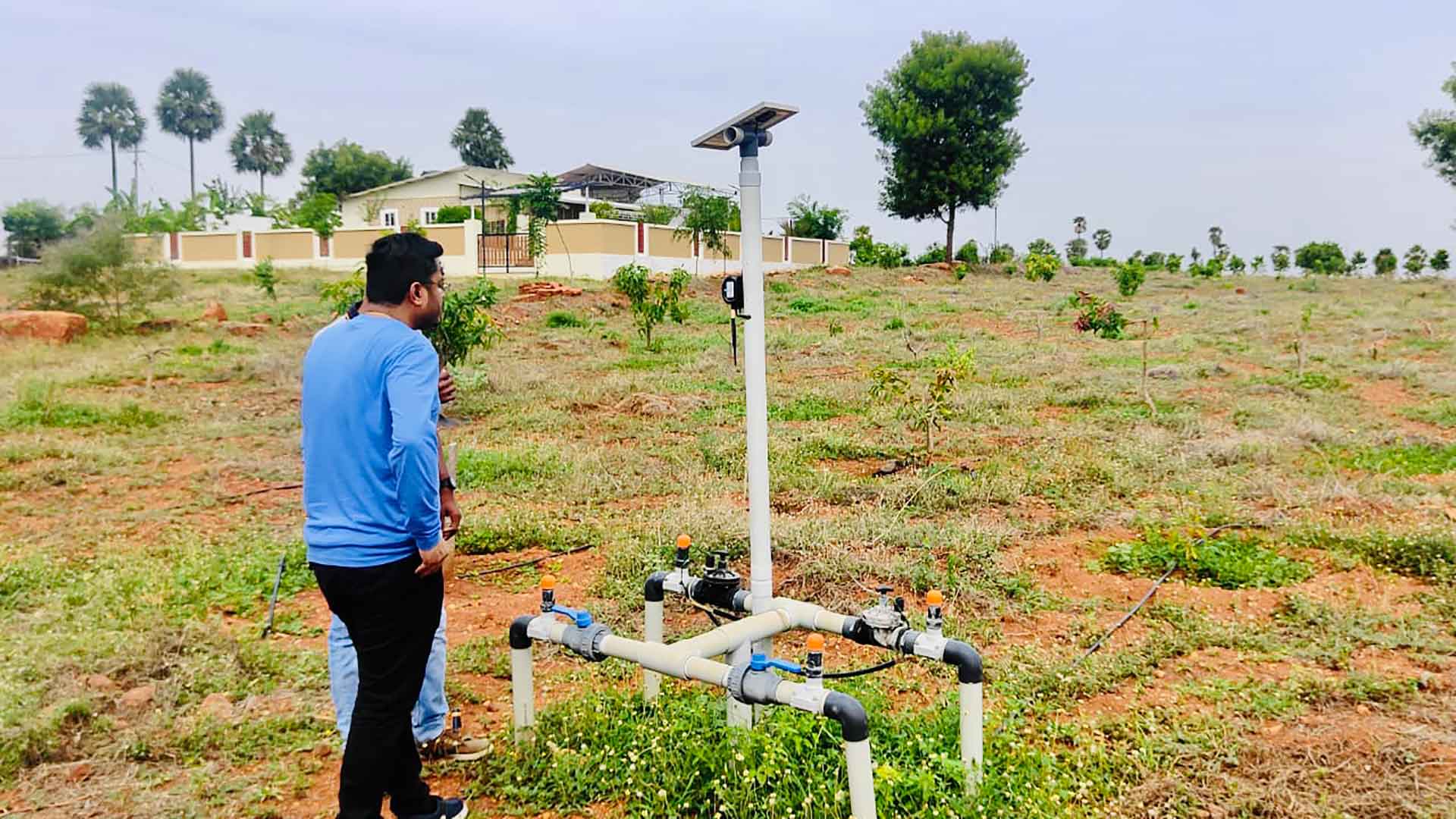Understanding the agtech ecosystem in India can spur future investments
By 2030, India will have a freshwater shortfall of about 50 percent. Agriculture accounts for 78 percent of the country’s water use and irrigation innovation will be key to meeting the demand for water and food in the future. However, currently, it is difficult for agtech startups to find investors because of the uncertainty of the agtech landscape. In order to link new technologies to funding, the startup trends and business landscape need to be illuminated.
In their new report, DWFI Program Research Manager Ankit Chandra and Director of Policy Nick Brozović highlight key emerging trends for agtech startups in India. Trends include transitions from hardware sales to software sales and services; bundling with other agricultural products and vertical integration; and varied partnerships to reduce customer acquisition costs. With increased global focus on the use of data to add value for irrigating farmers, they expect domestic and international growth opportunities for Indian startups that can leverage partnerships to scale quickly.
In a follow-up report, Chandra and Brozović provide an in-depth analysis of several agtech business models. The report provides insights into the larger business landscape of agricultural water use in India with a detailed ecosystem map (a visual representation of a system that highlights relationships in a particular context), and capital investments flowing within the sector.
“Investments in sustainability and climate mitigation solutions are increasing, and irrigation tech innovations align well with these trends,” said Chandra, in an interview with Business Today, India's largest circulated business magazine. “We believe that as more agritech start-ups focused on water management frame their business models in the context of climate change and sustainability, it could potentially attract more VC [venture capitalist] investment.”
The reports were well received and shared widely through large agribusiness channels in India. In June 2023, Chandra traveled to India to speak, collaborate and strengthen partnerships with The World Bank, The Nudge Institute, irrigation companies and several agtech startups. An outcome of his trip was a partnership with The Nudge Institute on DCM Shriram AgWater Challenge, which encourages feasible irrigation solution ideas for smallholders in India. The AgWater Challenge is a year-long competition that intends to build a cohort of 15 agtech startups and an ecosystem of actors and organizations focused on water management in agriculture for smallholder farmers. As a partner, DWFI will assist through the selection process and provide mentorship and guidance to finalists.
The reports shed light on the current and future agtech industry in India, helping to reduce risk of potential investors. By fostering global entrepreneurship and advancements in technology and irrigation, DWFI is achieving its mission of influencing the adoption of technology and best practices to improve water use in agriculture and address global water security concerns.
FY 2023 Annual Report
- Overview
- Introduction
-
Research and Policy
-
Global
- Brazilian agricultural state looks to Nebraska and DWFI to sustainably manage water resources
- Irrigation equipment ownership not always best for smallholder farmers
- McCornick and Neale re-elected to World Water Council, DWFI involved in preparations for the World Water Forum
- Understanding the agtech ecosystem in India can spur future investments
-
Regional + National
- DAWN Project testing its decision-support tools with corn and soybean growers
- Water Center director helps City of Lincoln find second water source
- Water, Climate and Health program makes an impact in Nebraska
- DWFI's flux tower network now helps validate carbon credits
- Understanding climate’s effect on the health of Americans
- Groundwater transfer success stories guide water managers in meeting local water needs
- Advancements in crop modeling help adapt to climate change
-
Global
-
Education
- Faculty Fellows
-
Supported Students
- DWFI funds eight new students working on mission-related projects
- DWFI continues support of Platte Basin Timelapse interns
- Estimation of manure nutrient capacity in Nebraska minimizes water quality impacts
- Could cover crops replace offset in-season corn fertilizer?
- Congratulations to DWFI-supported student graduates
-
Communication
- Digital and online engagement connects DWFI with its global audience
- Coverage of DWFI research and events reaches more than 219 million people
- Creative storytelling used to amplify DWFI smallholder irrigation research outputs
- DWFI expertise tapped for national reports and publications
- DWFI staff receive well-deserved recognition
- 2022 Nebraska Water Center Annual Report now available
-
Outreach and Events
- Global Conference draws international audience to address water and food security
- On-farm event in Western Nebraska strengthens partnerships, spurs new ideas
- Engagement recovers to pre-pandemic levels
- Drought at forefront of discussions at Platte River Basin Conference
- 49th Annual Water Tour broadens knowledge about Nebraska water
- Nebraska Water Center seminars focus on hot topics in Nebraska Water
- Development
- Resources
- Search
FY 2023 Annual Report
- Overview
- Introduction
-
Research and Policy
-
Global
- Brazilian agricultural state looks to Nebraska and DWFI to sustainably manage water resources
- Irrigation equipment ownership not always best for smallholder farmers
- McCornick and Neale re-elected to World Water Council, DWFI involved in preparations for the World Water Forum
- Understanding the agtech ecosystem in India can spur future investments
-
Regional + National
- DAWN Project testing its decision-support tools with corn and soybean growers
- Water Center director helps City of Lincoln find second water source
- Water, Climate and Health program makes an impact in Nebraska
- DWFI's flux tower network now helps validate carbon credits
- Understanding climate’s effect on the health of Americans
- Groundwater transfer success stories guide water managers in meeting local water needs
- Advancements in crop modeling help adapt to climate change
-
Global
-
Education
- Faculty Fellows
-
Supported Students
- DWFI funds eight new students working on mission-related projects
- DWFI continues support of Platte Basin Timelapse interns
- Estimation of manure nutrient capacity in Nebraska minimizes water quality impacts
- Could cover crops replace offset in-season corn fertilizer?
- Congratulations to DWFI-supported student graduates
-
Communication
- Digital and online engagement connects DWFI with its global audience
- Coverage of DWFI research and events reaches more than 219 million people
- Creative storytelling used to amplify DWFI smallholder irrigation research outputs
- DWFI expertise tapped for national reports and publications
- DWFI staff receive well-deserved recognition
- 2022 Nebraska Water Center Annual Report now available
-
Outreach and Events
- Global Conference draws international audience to address water and food security
- On-farm event in Western Nebraska strengthens partnerships, spurs new ideas
- Engagement recovers to pre-pandemic levels
- Drought at forefront of discussions at Platte River Basin Conference
- 49th Annual Water Tour broadens knowledge about Nebraska water
- Nebraska Water Center seminars focus on hot topics in Nebraska Water
- Development
- Resources
- Search
Top image caption
An irrigation system provides water for a plant in India.
Credit: DWFI
Related Articles
DWFI expertise tapped for national reports and publications
DWFI’s research and expertise is frequently requested for respected industry publications and reports. Here is a sample of the publications.
2022 Nebraska Water Center Annual Report now available
The Nebraska Water Center’s 2022 annual report is now available. This report highlights the research, outreach, and training done to support the Water Center’s mission in 2022.
Creative storytelling used to amplify DWFI smallholder irrigation research outputs
The DWFI communications team has capitalized on engagement growth in the digital space as a result of the pandemic.
COOKIE USAGE:
The University of Nebraska System uses cookies to give you the best online experience. By clicking "I Agree" and/or continuing to use this website without adjusting your browser settings, you accept the use of cookies.


